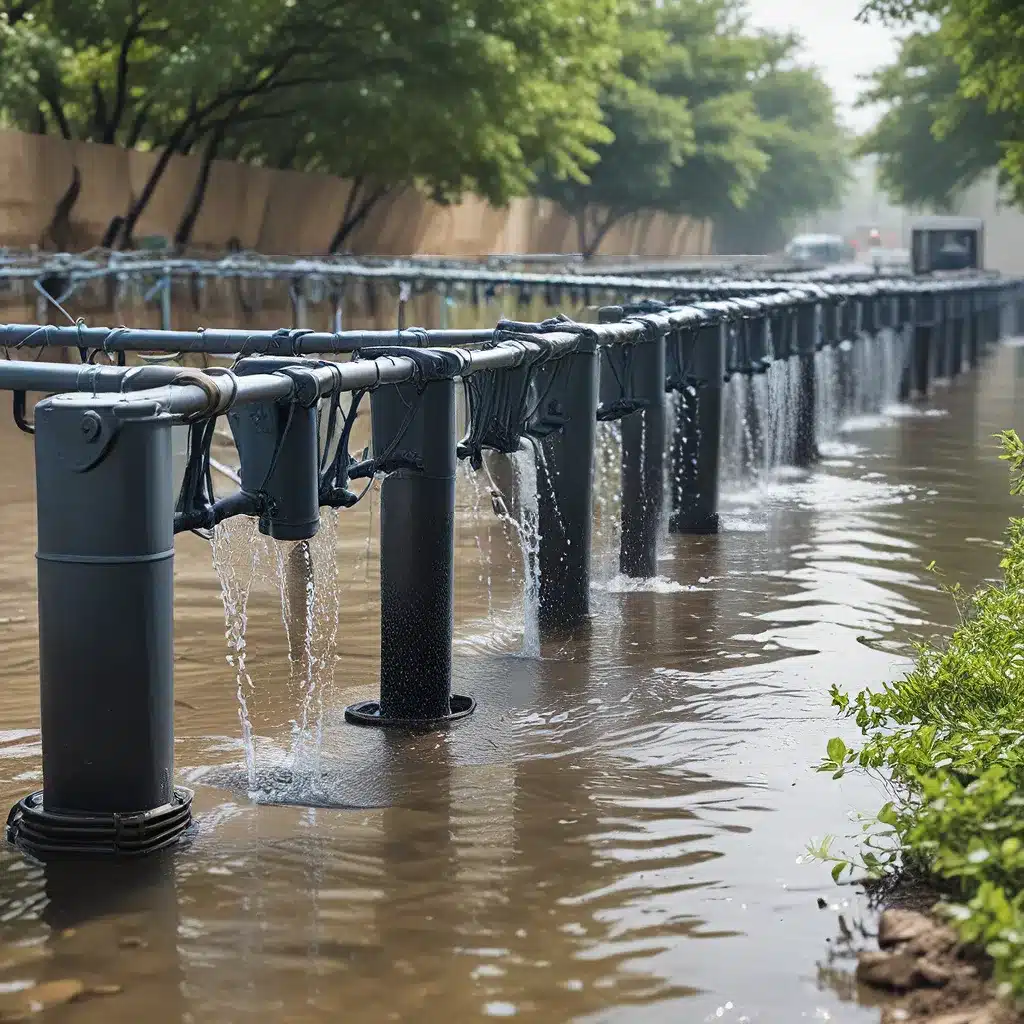
As I stare out the window, watching the steady flow of water from the faucet, I can’t help but marvel at the sheer complexity of our water management systems. From the intricate network of pipes and treatment plants to the diligent efforts of water professionals, ensuring a reliable supply of clean water is no easy feat. But what if I told you there’s an innovative technology that could revolutionize the way we manage our most precious resource?
Buckle up, my friends, because we’re about to dive headfirst into the world of blockchain and its potential to transform the water industry.
Blockchain: The Disruptive Technology Reshaping Industries
If you’re like me, the word “blockchain” might conjure up images of cryptocurrencies and techno-savvy investors. But this distributed ledger technology has far-reaching implications that go beyond the realm of finance. In fact, blockchain represents a modern and promising innovation capable of revolutionizing various sectors, including the water industry.
Imagine a world where every drop of water is meticulously tracked, from its source to its point of consumption. Where smart contracts automatically execute water transactions, and data integrity is guaranteed through the immutable nature of the blockchain. It’s a world where transparency and trust reign supreme, and the inefficiencies of traditional water management systems are a thing of the past.
Streamlining Water Meter Reading: A Blockchain-Powered Solution
One of the most exciting applications of blockchain in water management is the development of a mobile app that streamlines the water meter reading process. By harnessing the power of blockchain, this app allows users to conveniently input their water meter readings using their smartphones. The recorded data is then securely stored on the Ethereum blockchain, utilizing smart contracts to ensure data integrity and transparency.
Goodbye, manual meter reading and the potential for human error or tampering. With this blockchain-powered solution, water utilities can streamline their operations, improve customer experience, and maintain a tamper-proof record of water usage. It’s a win-win for everyone involved.
Revolutionizing Water Transactions: Blockchain-Enabled Smart Contracts
But the potential of blockchain in water management doesn’t stop there. Imagine a world where water transactions are executed seamlessly through the use of smart contracts. These self-executing digital agreements can automatically facilitate the exchange of water rights, water trading, and even water-related financial instruments.
Visualize a scenario where a drought-stricken community can quickly and securely purchase water from a neighboring region, with the transaction verified and recorded on the blockchain. No more bureaucratic red tape, no more concerns about the trustworthiness of the involved parties. Just a seamless, transparent, and tamper-proof exchange of a vital resource.
Ensuring Water Quality and Traceability: Blockchain’s Immutable Records
Another exciting application of blockchain in water management is its ability to enhance water quality and traceability. Imagine being able to trace the journey of a drop of water from its source to your tap, verifying its purity and compliance with regulatory standards every step of the way.
Blockchain’s immutable record-keeping capabilities can provide a reliable and transparent means of tracking water quality data, from chemical analysis to treatment processes. This not only strengthens consumer trust but also empowers water authorities to quickly identify and address any issues that may arise.
Fostering Water Conservation and Sustainability: Blockchain-Enabled Incentives
But the true power of blockchain in water management lies in its ability to incentivize sustainable practices. Imagine a world where every drop of water saved is rewarded, and every liter of wastewater treated is recognized and valued.
Through the use of blockchain-enabled tokens or digital currencies, water users can be incentivized to adopt water-efficient technologies, reduce consumption, and engage in water recycling and reuse. These incentives can be seamlessly managed and tracked through the blockchain, creating a virtuous cycle of water conservation and sustainability.
Navigating the Challenges: Blockchain’s Limitations and Regulatory Considerations
Of course, like any transformative technology, blockchain in water management is not without its challenges. Issues such as scalability, energy consumption, and regulatory compliance must be carefully navigated to ensure the successful integration of this innovative solution.
Ongoing research and active discussions within the water industry and regulatory bodies are crucial to address these concerns and pave the way for widespread adoption. After all, the stakes are high, and the potential rewards of harnessing the power of blockchain in water management are too great to ignore.
Embracing the Future: Inlandwaters Inc.’s Commitment to Blockchain Innovation
At Inlandwaters Inc., we’ve been closely following the developments in blockchain technology and its impact on the water industry. As a leading provider of water treatment and environmental services, we recognize the immense potential of this disruptive innovation to streamline our operations, enhance transparency, and foster a more sustainable water future.
That’s why we’re proud to announce our commitment to exploring and implementing blockchain-based solutions within our organization. From smart meter reading to water quality traceability and beyond, we’re dedicated to harnessing the power of blockchain to revolutionize the way we manage and protect this precious resource.
So, are you ready to join us on this exciting journey? Get ready to dive into a new era of water management, where the future is written in the immutable blocks of the blockchain.


